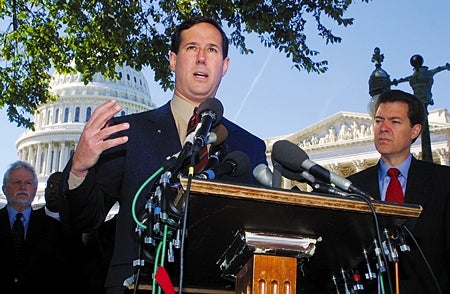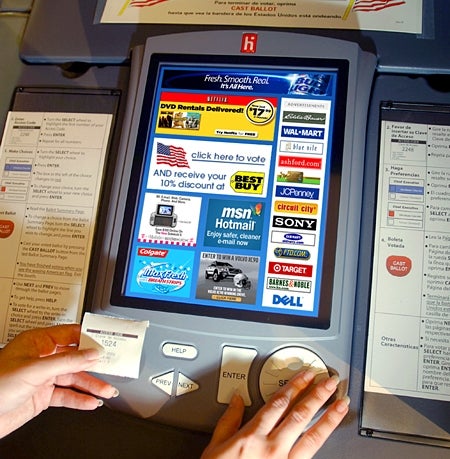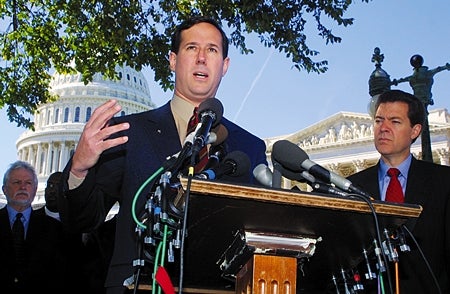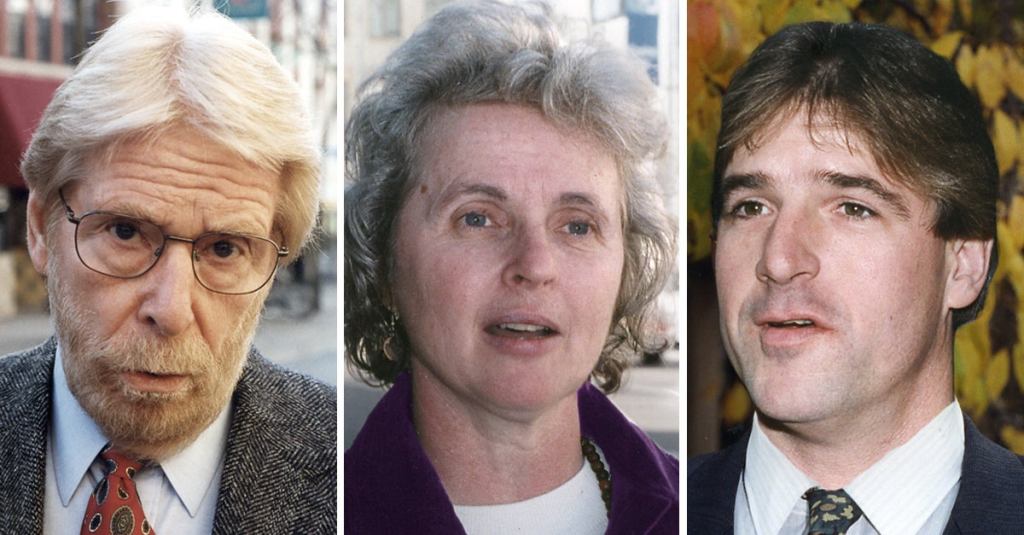WASHINGTON, DC—Citing the “extreme inefficiency” of this month’s U.S. presidential election, key Republicans called for future elections to be conducted by the private sector.

“When the average citizen hears the phrase ’presidential election,’ he thinks of long lines at polling places and agonizing waits as election results are tallied,” U.S. Sen. Rick Santorum (R-PA) told reporters Monday. “Putting the election of our public officials into the hands of private industry would motivate election officials to be more efficient.”
“There’s too much talk about the accuracy and fairness of our national elections, and not enough about their proficiency and profitability,” Santorum added. “Who bears the brunt of bureaucratic waste? Taxpayers.”
U.S. Sen. Conrad Burns (R-MT) called for an end to “big government overseeing the election of big government.”
“It’s time we opened the election process to competition,” Burns said. “The free market is the petri dish for innovation, be it in telecommunications, the healthcare system, or democracy.”
Burns said that, to create healthy market activity, each congressional district should be able to collect bids and offer contracts to the company that can offer the lowest prices and the best service.
“Look at the voter turnout we had this year,” Burns said. “Less than 60 percent of the population voted, and that number is still the highest it’s been since 1968. Contractors should get a cut based on the number of votes their machines record. That way, they’d have a monetary incentive to get more Americans to the polls.”
Although legislation has not yet been drafted, several companies have hired development teams to draw up proposals for the takeover of the electoral process.
“Voters need an incentive to get to the polls,” said potential contractor Fred Mitchelson of Accenture, formerly Arthur Andersen. “It’s not like the old days when people were motivated by a sense of civic pride—that’s just too Waltons. We’re in negotiations to partner with Best Buy. Under our plan, every voter would receive a coupon for 20 percent off any purchase up to $500—it would actually pay to go to the polls! It’d be great exposure for Best Buy and a fantastic opportunity for us to hit and exceed that magic six-zero. Oh, and this whole registration thing has gotta go.”
Mitchelson said prior elections failed to take advantage of the “vast potential for corporate tie-ins and advertising revenue.”
“There is a lot of untapped revenue in elections,” Mitchelson said. “We could get sponsorship for every blank surface in the polling place easily—I mean everything, from the back of the ballot to the curtain itself. If we really want to break out of the box, we don’t even have to stop at surfaces. We could pipe music by Sony recording artists into the voting booths.”

“I’m looking at all these missed opportunities and thinking, ’Who’s the numbskull in charge here?’” Mitchelson added. “With the level of foot traffic they see, it’s ridiculous that every polling place doesn’t have an Au Bon Pain.”
According to Mitchelson, the advantages of privatized voting go beyond quick, friendly service and great savings. A percentage of all privatized-voting profits would go to the U.S. government, which would “pass those savings on to you, the taxpayer.”
“We also plan to offer premium voting services,” Mitchelson said. “For only $20, you’ll be eligible for Guaranteed No-Wait Voting™ and you’ll receive access to the luxurious VIP voting lounge, with fresh coffee and pastries. Going to vote will feel like a trip to the spa!”
Not all election contractors advocate the use of premium election services.
“The American tradition of democracy is great, but it could be dramatically streamlined,” said former Intel executive Jerome Klieg, now the CEO of VelociVote, a company that plans to bid for the 2008 presidential election. “Guaranteed No-Wait Voting™ is a good idea, but it basically approaches the election of our leader the same way we’ve approached it for centuries. Now, hear me out. Currently, every American citizen over 18 years of age is eligible to vote. That’s 195 million voters. Whoa! Seriously. That’s a lot of voters. Having every American vote creates mass confusion, as we saw in 2000 and 2004. Why? To what end?”
Added Klieg: “Rather than trying to attract more voters, let’s attract better voters. We could reduce the overall cost of the election by 97 percent if we paid a small body of informed, designated voters to keep abreast of candidates’ policy positions. The candidates would save time and money, too, because they could focus their attention on the thousand votes that count. And fewer ballots means faster, more accurate counting. It’s just good sense.”
Some critics have voiced concerns about private-sector elections, arguing that small businesses might be excluded from the bidding process.
“The government needs to make sure that local companies have a shot at contracts, too,” said Dean Small, founder of Capitol City Speed-E Elections in Austin, TX. “It’s only fair.”
Santorum said these complaints will be considered as the election-reform bill is drafted.
“We’ve already got some good ideas on the table,” Santorum said. “And, considering that we control both the House and the Senate, selling this proposal to Congress will be a breeze.”







